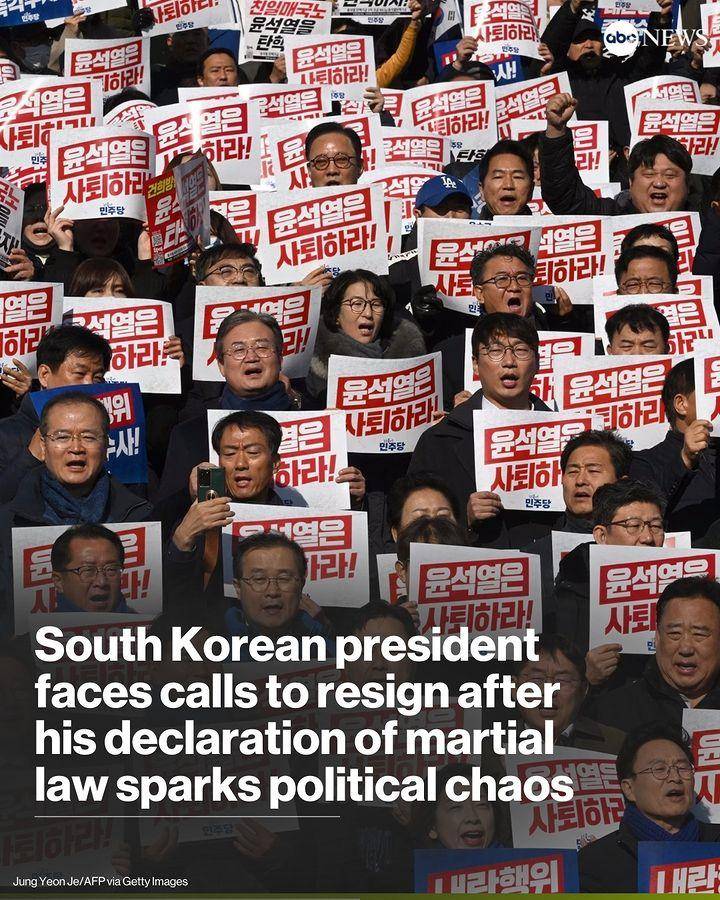South Korean Opposition Calls for President Yoon Suk Yeol's Resignation Following Martial Law Declaration.
In a stunning turn of events, lawmakers and members of South Korea’s leading opposition party, the Democratic Party, gathered in Seoul on Wednesday to demand the resignation of President Yoon Suk Yeol. The unprecedented call for his resignation came after his controversial televised announcement declaring martial law, a move that has sparked political turmoil across the nation.
The declaration, which was made late Tuesday night, shocked many South Koreans and triggered immediate concerns about the direction of the country’s democracy. President Yoon’s announcement, while brief, stated that martial law would be implemented in response to escalating protests and unrest. The move has been widely criticized by political opponents who view it as an overreach of executive power, and a step toward authoritarian rule.
The opposition Democratic Party, the largest party in South Korea’s National Assembly, quickly condemned the president’s actions. The party's leaders issued a firm statement, demanding that President Yoon step down immediately to avoid further instability. "If President Yoon does not step down immediately, we will immediately begin impeachment proceedings," the statement declared, emphasizing the seriousness of the situation.
The declaration of martial law comes amid rising dissatisfaction with President Yoon’s leadership, which has been marked by several contentious policies and decisions. Critics argue that his administration has failed to address the pressing concerns of ordinary citizens, including economic hardships, labor disputes, and social inequality. Furthermore, the decision to impose martial law has ignited fears that South Korea could be on the brink of political unrest, undermining the country’s hard-won democratic principles.
Supporters of the president, on the other hand, argue that the declaration was necessary to restore order amid increasing civil disobedience. They contend that the president is merely taking decisive action to preserve stability and protect the nation’s democratic institutions from external threats.
The growing political crisis has left the nation divided, with widespread protests erupting in various cities, calling for both the resignation of President Yoon and an end to martial law. South Korea's constitutional democracy is now at a crossroads, with the opposition vowing to pursue legal and political means to remove the president from office if he refuses to resign.
As the situation continues to unfold, the world watches closely to see whether South Korea will maintain its status as one of Asia’s most stable democracies or face a new era of political volatility. The coming days will be crucial in determining the future of President Yoon’s administration and South Korea’s democratic governance.
Key Takeaways:
- South Korea’s opposition party calls for President Yoon Suk Yeol’s resignation after his martial law announcement.
- The opposition threatens impeachment if Yoon does not step down immediately.
- Critics see the declaration as a threat to democracy, while supporters argue it is necessary for national security.
This developing political crisis is attracting international attention, as the stability of South Korea's democracy could be at risk. Stay tuned for more updates on this evolving story.



No comments yet
Be the first to share your thoughts!